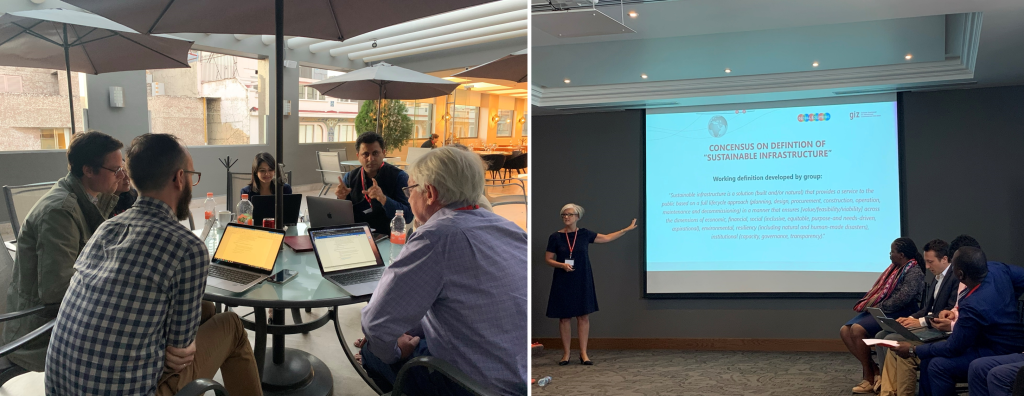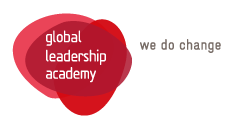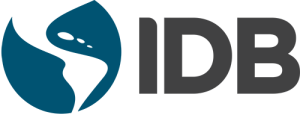The Solutions Lab - Scaling for Sustainable Infrastructure

Sustainable infrastructure is globally recognized as key to realizing the Sustainable Development Goals and the Paris Agreement on Climate Change. Over the last years, more and more strategies, policies and tools have been developed to unleash this potential for sustainable development. Yet, public and private sector still struggle to put in place infrastructures that meet the four principles of sustainability: economic and financial, environmental, social, and institutional. To analyze what hinders broad uptake of sustainable infrastructure solutions and to identify approaches that can be scaled across regions, the Global Solutions Initiative (GSI) and GIZ jointly launched The Solutions Lab – Scaling for Sustainable Infrastructure in October 2019. The Lab was a 10-month multi-stakeholder process that brought together change agents from the worlds of policymaking, business, finance, academia and civil society, who share a passion for sustainable infrastructure and a commitment to actionable solutions.
Work in the Solutions Lab
Following a first get-together in Berlin (November 2019), the Solutions Lab next reconvened for a for a deep-dive into existing sustainable infrastructure solutions, which was co-hosted by the Inter-American Development Bank in Mexico City (February 2020). The third meeting (June/July 2020) was held virtually in light of the outbreak of COVID-19 and centered around strategies to scale the solutions identified. While this marked the official end of the Solutions Lab journey, implementation is expected to continue organically throughout 2020 through the various workstreams that have been established over the last 10 months, including:
Work Stream 1: Narrative and Vision
This workstream outlines the Lab’s overall vision on sustainable infrastructure and sets the frame for successful collaboration, for instance by working towards a shared definition of ‘sustainable infrastructure’ that reflects the geographical and sectoral diversity of the Lab. Recently, the focus has been on drafting a Call to Action for a global pivot towards a holistic, integrated and transformative approach to deliver sustainable at scale in a post COVID-19 world.
Work Stream 2: THINK 20 (T20) Policy Briefs
Several Lab participants joined forces to write T20 policy briefs to inform discussions at Saudi Arabia’s G20 presidency and beyond. Topics include (1) multilevel governance and green finance for sustainable infrastructure, (2) innovations in revenue and finance models to scale up quality and sustainable infrastructure investments, (3) the need for system change to recouple growth with sustainability and shared prosperity, and (4) policies and implementing rules for data driven, integrated, risk-based planning of sustainable infrastructure. All briefs will be published on the G20 Insights platform.
Work Stream 3: Upstream Policy Considerations
Based on the shared belief that major efforts are needed “upstream”¹ to achieve true progress on the Global Goals, this group collaborates to strengthen capacities for integrated infrastructure planning at various levels of government. This includes spatial planning across sectors and the prioritization of those investments that best balance trade-offs among economic viability, resilience, ecosystems, social equity, and service delivery. Workstream members, inter alia from WWF, Resilience Brokers and different UN agencies, have been working on a joint Call to Action and a ‘Guidance Note’ to assist practitioners and public officials in shifting towards an integrated, holistic approach to sustainable infrastructure planning. What is more, the group contributes to pilots and related capacity building programs, most recently in the Mexican state of Oaxaca in cooperation with the development agency COPLADE.
Work Stream 4: Ensuring Sustainability at Project and Pipeline Levels
In addition to upstream considerations, it is critical to ensure the integration of meaningful sustainability criteria at the project level. This workstream was initiated by Mexico’s National Infrastructure Fund (FONADIN), which asked the Lab for advice on the mainstreaming of sustainability considerations across FONADIN’s infrastructure project pipeline. The Lab community since established itself as a “Critical Friends Group” to support FONADIN’s ongoing cooperation with the Inter-American Development Bank (IDB). Building on the FONADIN experience, the Lab is preparing a ‘Guidance Note’ to help project preparation officials that seek to replicate FONADIN’s sustainability efforts. The workstream´s ‘Call to Action’ zooms in on incentives for project preparation professionals to ensure sustainable project pipelines as a promising avenue to attract private capital.
Work Stream 5: Gender and Infrastructure
Inadequate energy, sanitation and transport infrastructure affects women disproportionately and presents a major hurdle to delivering the Sustainable Development Goals (SDGs). To counter the flawed yet widespread perception that infrastructure is gender-neutral and to move from theory to action, this group has been developing educational materials that provide guidance on how to plan, build and operate truly inclusive infrastructures. Work centered on a Call to Action, a knowledge repository on relevant publications, guidelines and good practice examples. What is more, the group has been advising the African Network for Women in Infrastructure (ANWIN) on mainstreaming gender-equality into the pan-African Programme for Infrastructure Development in Africa (PIDA).
Work Stream 6: Innovation Space
Because business-as-usual will not deliver the Global Goals, the Solutions Lab embraces creative disruption, including through digital innovations. Therefore, this workstream was created as a catch-all-space to constantly feed new ideas into our work. Examples include a proposal submitted to the Global Infrastructure Hub’s “Infrachallenge” for a Sustainable Infrastructure Chat (SiChat) – an AI-powered app that mines social media to make marginalised societal voices on large infrastructure projects rise above the noise. In light of the COVID-19 outbreak, the Innovation Space also serves to reconsider if and how current concepts and standards for sustainable infrastructure have to be adapted to increase resilience against future pandemics whilst delivering on the SDGs and Paris Agreement.
¹ Upstream Planning: government-led processes to determine land use plans at the national, sub-national, or municipal scale, including for specifc or large-scale infrastructure investments, based on national government strategic development visions and sub-national, multi-stakeholder group determined priorities.
Interested in Learning More about the Solutions Lab?
What all workstreams have in common is a bold vision for a more sustainable future and a pragmatic focus on infrastructure solutions that can be scaled across regions. Over the coming months, each will be creating both a 2-pager that summarises key concepts and solutions promoted as well as an actionable guidance note for practitioners that seek to implement the solutions promoted in their day-to-day work.
To regularly test and adjust the ideas developed, we also organise so-called “sounding board” events with a wide range of stakeholder groups around the world, including a group of Mayors in the Mexican state of Oaxaca (February 2020, see report) or representatives from the IMF and World Bank in a format jointly organised with The Brookings Institution (May 2020).
As co-hosts of the Solutions Lab, GIZ seeks to make the Solution Lab outputs as relevant as possible to our partners around the world and welcome any opportunity to discuss the Solutions Lab.
Please feel free to reach out to us via the contact info below.

Additional Resources:
- The Solutions Lab Booklet (includes information on the Lab concept, organizers and participants)
- Fact Sheet about the Solutions Lab Meeting Mexico City
Related Events:
- The Solutions Lab – Scaling For Sustainable Infrastructure: Third Lab Meeting “Milan Online” (June/July 2020)
- Webinar: “Reassessing Sustainable Infrastructure in Light of Covid-19” (May 2020)
- A Digital Global Solutions Summit Global Table on “COVID-19 & the Reinforced Case for Sustainable Infrastructure Development: Mobilizing Infrastructure Investments as Catalysts for Net Zero & SDG Delivery” (May 2020)
- Report about the Sounding Board in Oaxaca (summarises key results from the meeting with local authorities from the Mexican state of Oaxaca in February 2020)
Contact:
Should you be interested in learning more about the Solutions Lab, please reach out to:
Ms. Vanessa Bauer
![]() vanessa.bauer@giz.de
vanessa.bauer@giz.de
![]() +49 6196 79-7424
+49 6196 79-7424
Co-Host:

Implementing Partners:



